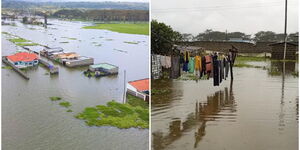The Energy and Petroleum Regulatory Authority (EPRA) has listed regulations allowing Kenyans to sell power to their neighbours, in a new move that is set to improve market operations and enhance competition in the industry.
According to the Electricity Market, Bulk Supply and Open Access Regulations, 2024, EPRA noted that the regulations would apply to Kenyans producing renewable energy in the form of wind, solar, small-hydros, biogas, municipal waste and tidal waves (use of turbines to generate tidal energy).
The purpose will be to produce electrical energy to supply power to other consumers.
Consumers seeking to sell power are, however, required to agree with EPRA before being allowed to connect their power to the grid.
This is by applying for a retail licence to enhance compliance with the regulations and prevent exploitation of the system to make more money.
Those seeking to apply for the licence will be required to submit an application to Kenya Power in the format prescribed in the regulations.
In the report, a user will be required to provide information regarding the provision of power including the amount of electrical energy to be generated, and the number of hours they will be providing electricity, which will be verified by meters installed and approved by the Kenya Bureau of Standards.
"The main meter shall be used for purposes of energy accounting and billing. The meter security and access shall be through seals and security codes. The applicants may opt to install their check meter as set out in the bulk supply agreement," read part of the regulations.
"The metering position for the intake or withdrawal shall be as agreed between Kenya Power and the applicants. The metres shall be tested as prescribed in the bulk supply agreement."
The power utility firm will take an average of 60 days to consider the application. During the period, various agencies will be dispatched to the power plant area to conduct various feasibility studies and provide an in-depth report of the technical, economic, legal and environmental considerations.
Upon review, the utility firm either forwards the application to EPRA if proven satisfactory or declines the grant of approval.
According to the Regulations, a consumer is liable to appeal within thirty days of receipt of the information.












